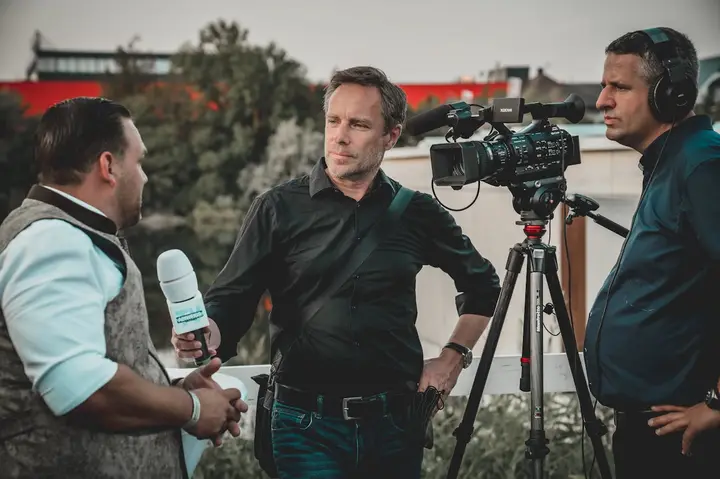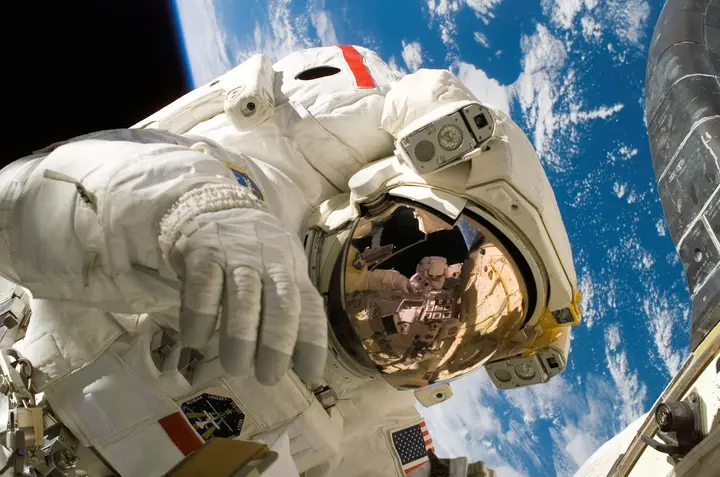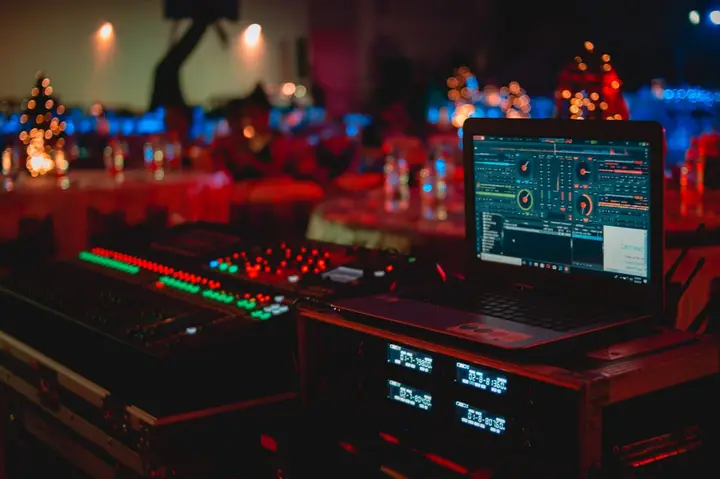How 'open' will the Democratic Party's nomination for a presidential candidate be? | DW News
Posted by: sunxin in News 3 months, 3 weeks ago
Kamala Harris: The Unlikely Heir to the Democratic Throne
The Unfortunate Breach: A Deep Dive into the Secret Service's Security Lapse
Posted by: sunxin in News 3 months, 3 weeks ago
On July 13th, an assassination attempt on Donald Trump sent shockwaves through the nation, raising critical questions about the efficiency of our protectors—the Secret Service. Director Kimberly Cheetle's recent admission of the agency's failure has sparked a firestorm of debate and calls for accountability. How could an agency entrusted with guarding our nation's leaders drop the ball so spectacularly?
Ukraine's Resilient Beat: Atlas Festival Rises Above War
Posted by: sunxin in News 3 months, 3 weeks ago
In the heart of a nation gripped by conflict, a beacon of hope and resistance shines brightly. Can a rock festival bring solace to a people in turmoil? The recent Atlas United Music Festival in Kyiv answers that question with a resounding yes.
Kamala Harris: The Unlikely Heir to the Democratic Throne
Posted by: sunxin in News 3 months, 3 weeks ago
In a turn of political events that has left many scratching their heads, Democratic heavyweight Nancy Pelosi has endorsed Vice President Kamala Harris for the party's presidential nomination. This move comes on the heels of Joe Biden's decision not to seek re-election, a decision influenced by questions about his age and mental acuity. As the potential candidates line up, Harris seems to be the chosen one, even earning support from former rivals like Gavin Newsom and Gretchen Whitmer. But can she be the person to unseat Donald Trump?
The Rise of Kamala Harris: A New Dawn for the Democratic Party?
Posted by: sunxin in News 3 months, 3 weeks ago
As the sun rose on the first full day of her campaign, Kamala Harris stood poised to become the Democratic party's presumptive nominee, ready to take the baton from President Joe Biden. Her journey to this pivotal moment has been marked by a surge of delegate pledges, a resounding endorsement from the president, and a wave of support from key Democratic figures. But what does this mean for the future of American politics?
When Cancer Meets War: The Heart-Wrenching Journey of Little Demetric
Posted by: sunxin in News 3 months, 3 weeks ago
Imagine the heartache of a parent whose child is diagnosed with cancer—a diagnosis that is harrowing enough on its own. Now, what if that child were diagnosed in a war zone? For many children in Ukraine, this is the tragic reality they face. Amidst the chaos of conflict, they must battle not only their illness but also the brutal circumstances that threaten their lives.
The Tense Balancing Act: Netanyahu's Visit to Washington and the Hostage Crisis
Posted by: sunxin in News 3 months, 3 weeks ago
As Israeli Prime Minister Benjamin Netanyahu lands in Washington, the purpose of his trip is clear yet contentious. At home in Israel and among critics in the US, there's a growing chorus of voices questioning his efforts to secure the release of hostages held by Hamas since October 7th. The last time Netanyahu and President Joe Biden crossed paths in September, the ties between their countries were tense—and they've only tightened since.
The Hidden Cost of Tourism: A Cry from the Heart of Spain
Posted by: sunxin in News 3 months, 3 weeks ago
Are you aware that the sparkling allure of tourism can sometimes cast a shadow over the very places it adorns? In the vibrant streets of Barcelona, the Canary Islands, and the sun-kissed island of Mallorca, thousands are taking a stand against the unintended consequences of their regions' popularity. This isn't a protest against tourists; it's a plea for a more sustainable approach.
The Shadow of Peacekeepers: Bangladesh's Dark Side Exposed
Posted by: sunxin in News 3 months, 3 weeks ago
Have you ever wondered what happens when the symbols of peace become tools of oppression? In Bangladesh, a country marred by recent violent clashes, this question hits close to home. The government's job quota system has sparked protests, leading to tragic loss of life and a harsh crackdown. But it's not just the violence that's shocking—the use of vehicles adorned with United Nations insignia in these operations has raised eyebrows worldwide.
A New Chapter for Palestinian Unity: The Beijing Declaration and Its Implications
Posted by: sunxin in News 3 months, 3 weeks ago
The landscape of Palestinian politics has been fraught with division and conflict for decades. Now, a significant development has emerged from an unexpected quarter: the Beijing Declaration. This agreement, signed by rival Palestinian factions including Hamas and Fatah, marks a potential turning point in the quest for Palestinian unity. But can this declaration withstand the test of time and the deep-seated divides within Palestinian ranks?
Recent Posts
- Tragedy Unfolds: The Heartbreaking Attack at Mogadishu's Leo Beach
- Clash in Liverpool: The Battle Between Anti-Racism and Anti-Immigration
- Tragedy Unfolds: Kerala's Heartbreaking Battle with Landslides
- Tragedy in Tarim: A Glimpse into the Aftermath of Israeli Aerial Strikes
- The Tragic Attack on Hamama School: A Story of Innocence Lost in Shik Radwan
Categories
- Official Announcement (3)
- News (1653)
- 新闻 (28)
- Technology (300)
- 科技 (235)
- 科普 (418)
- Science (409)
- 公开课 (180)
- MOOC (183)
- Business (36)
- 揭秘 (143)
- Mysteries (124)



